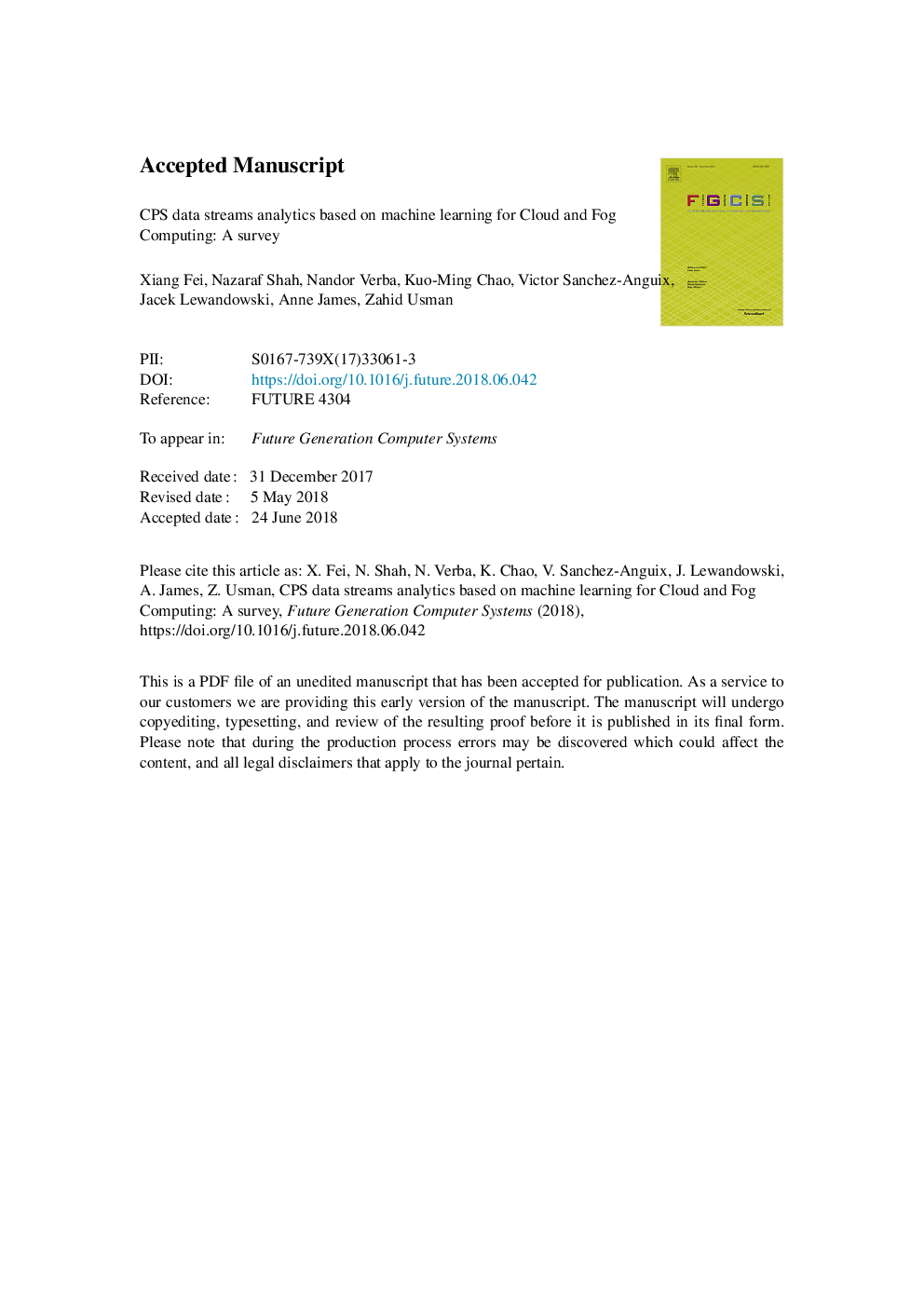| Article ID | Journal | Published Year | Pages | File Type |
|---|---|---|---|---|
| 11002403 | Future Generation Computer Systems | 2019 | 37 Pages |
Abstract
Cloud and Fog computing has emerged as a promising paradigm for the Internet of things (IoT) and cyber-physical systems (CPS). One characteristic of CPS is the reciprocal feedback loops between physical processes and cyber elements (computation, software and networking), which implies that data stream analytics is one of the core components of CPS. The reasons for this are: (i) it extracts the insights and the knowledge from the data streams generated by various sensors and other monitoring components embedded in the physical systems; (ii) it supports informed decision making; (iii) it enables feedback from the physical processes to the cyber counterparts; (iv) it eventually facilitates the integration of cyber and physical systems. There have been many successful applications of data streams analytics, powered by machine learning techniques, to CPS systems. Thus, it is necessary to have a survey on the particularities of the application of machine learning techniques to the CPS domain. In particular, we explore how machine learning methods should be deployed and integrated in Cloud and Fog architectures for better fulfilment of the requirements of mission criticality and time criticality arising in CPS domains. To the best of our knowledge, this paper is the first to systematically study machine learning techniques for CPS data stream analytics from various perspectives, especially from a perspective that leads to the discussion and guidance of how the CPS machine learning methods should be deployed in a Cloud and Fog architecture.
Related Topics
Physical Sciences and Engineering
Computer Science
Computational Theory and Mathematics
Authors
Xiang Fei, Nazaraf Shah, Nandor Verba, Kuo-Ming Chao, Victor Sanchez-Anguix, Jacek Lewandowski, Anne James, Zahid Usman,
